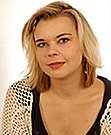
Links
Kontakt
Dr. Ida Harboe Knudsen
Aarhaus Universtiy
Section for Anthropology and Ethnography
Telefon: +(45) 89424698
etnoih@hum.au.dk
Raum Building 4236, room 149
Moesgård Allé 20
8270 Højbjerg (Denmark)
zur Homepage von Dr. Ida Harboe Knudsen
Postanschrift:
Dr. Ida Harboe Knudsen
8270 Højbjerg (Denmark)
Dr. Ida Harboe Knudsen

Kurzzeitstipendiatin (06/2009 - 11/2009)
Verteidigung am 30.06.2010
Prädikat: magna cum laude
Aktuell: PostDoc-Stipendium des Danish Independent Research Council am Department for Ethnography and Anthropology, University of Aarhus, Denmark.
Effects of Legal Changes in the Lithuanian Countryside after the Entrance to the EU
My dissertation focuses on the transformative process of the Lithuanian agricultural sector in the years leading up to and since EU membership in 2004. The preparations for the EU-membership started in the early 90´s, which means that the period after regained independence in 1990 and up to the present day has been marked by co-existing processes of dis-integration from the Soviet Union and integration into the EU. This adds a specific dynamic of change and continuity, and provides the opportunity for new hybrid constructions of legal and social norms in rural Lithuania. The aim is thus to investigate the impact of institutional and legal changes initiated by EU agricultural programs for new member states on Lithuanian rural daily life.
I work from the approach that the EU is not arriving in an empty space and development is not only coming from "above." Development is taking place at the local level, independently of the EU-entrance. People already have their own social settings, their own daily practices and their own (unwritten) norms and codes of behavior. A new incoming law may be hybridized or creolized in interaction with the local surroundings and with various different outcomes. This co-existence of legal orders is not restricted to the countryside alone, but is likewise happening in the municipalities and centers of administration, which also function according to their own norms and practices, some of which date back to the previous Soviet regime.
In my dissertation I suggest that EU-integration was achieved by means of exclusion as EU-standards and product harmonization required fulfillment of very specific measures. Farmers who could not comply with these did not become part of the EU-(official)-market. This meant that EU-requirements created new divisions of production in the agricultural sector. An important point is that exclusion is not only a negative; exclusion may enable people to operate along with other strategies for sale and production, as they are not being submitted to strict EU-standards and control.
As for farmers who do integrate in the EU-production, they do not passively settle with measurements of EU-productions either. Rather, they often circumvent rules, adjust legislation and find ways around legal procedures in order to "keep going." This however, should not be seen as resistance to what could be perceived as a distant hegemonic system; the majority of them fully support the EU. Rather, I see this as practical negotiations of the situation: a way in between what is required and what is possible.
In my dissertation I argue that the restructuring of the agricultural sector did not only embrace production. Rather it affected a broad scale of already existing legal, economic conditions and arrangements for social security. As family farming is being reduced as a wanted effect of the standard setting and modernization of farms, no alternative working places are established in the countryside. This has led to large scale emigration from the countryside by the young people as they seek work in the cities or abroad. The effect is difficulties in the further development of the countryside, for as young people leave, it requires local re-arrangements of social care and security. Furthermore, this demographic change affects family structures in the countryside, as the hitherto common three-generations-under-one roof-family is coming to an end.
With a focus on legal and social change in the time around EU-membership, the dissertation is taking up discussions related to the transformation of society and local culture as consequences of the EUropeanization of Lithuania. This serves as an example of how external legal influences get adapted to local settings and create change and motion in society, however, often in different ways than initially planned. In this way interaction between external influences and local frameworks is discussed with a focus on social and legal transformation within one of the new EU-member states.
Education
| 2009 | Scholarschip holder GS SCM (six month) |
| 2006 - 2009 | PhD within the Marie Curie Program at the Max Planck Institute for Social Anthropology, Halle |
| 2006 | April: Graduated as Magister (MA) in Ethnography and Social Anthropology at the University of Århus, Denmark |
| 2002 | started at the Master’s program in Ethnography and Social Anthropology, Århus University, Denmark |
| 2002 | completed my BA |
| 1999 | Autumn: started BA at Århus University, Denmark, at the Department for Ethnography and Social Anthropology |
Work experience
| 2004 - 2008 | gave seven seminars at the Kaunas University, Lithuania |
| 2004 | October: Taught in the course "Power, Conflict and Morality in the Post-Socialist World" at Copenhagen University, Denmark |
| 2003 | Spring term: Worked as assistant at the Department for Anthropology at the Vilnius University, Lithuania |
Publications
Knudsen, Ida. 2006. From the Soviet Union to the European Union: Property Rights and Property Relations in a Post-Soviet Lithuanian village. Master thesis, Århus University, Denmark.
Knudsen, Ida. 2006. Trade and Exchange among Farmers in a Post-Soviet Lithuanian Village, in: Defining Region: Socio-Cultural Anthropology and Interdisciplinary Perspectives, pp: 10-29, Klaipeda University.
Knudsen, Ida. forthcoming. Promoting Politics in an A-political Feel-Good-Environment, The case of the Farmers´ Party in rural Lithuania. Kaunas University.
Knudsen, Ida. forthcoming. Who represents who? - a critical approach to Lithuanian identity discourse. Klaipeda University.




